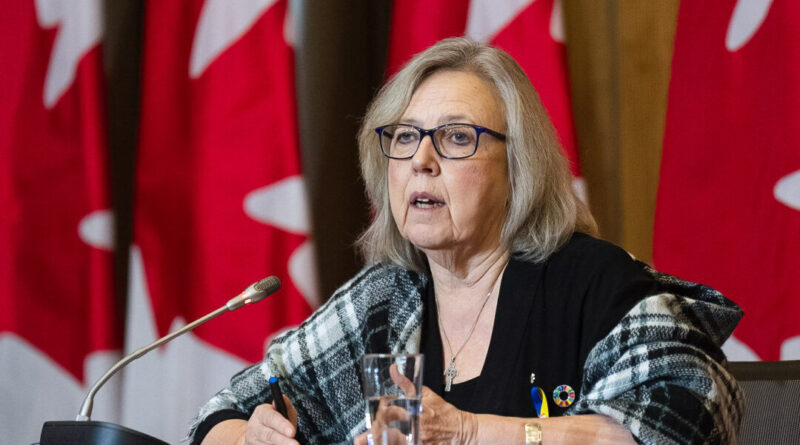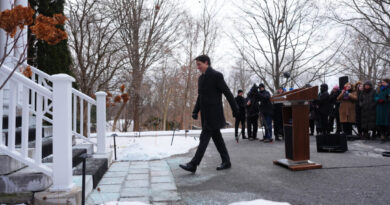Elizabeth May assures MPs no lawmakers have been ‘compromised’ while discussing unveiling the identities of suspected foreign colluders
Green Party Leader Elizabeth May advised fellow MPs against advocating for the disclosure of names of parliamentarians allegedly involved in foreign interference, citing potential risks to national security. She stated that, to her knowledge, no lawmakers are compromised.
The public safety committee convened urgently to discuss commencing a new study on India’s interference in Canada. Recent events, such as the expulsion of six Indian diplomats by Canada and allegations of serious criminal activities involving Indian government agents, prompted the committee’s actions.
A motion from NDP MP Alistair MacGregor to conduct a study on the matter and summon the RCMP and relevant officials for testimony was unanimously approved.
However, a subsequent motion by MacGregor proposing security clearances for all party leaders faced resistance from the Conservatives. They sought to amend the motion to publicly reveal the names of parliamentarians collaborating with foreign states.
May emphasized during the debate that no current Parliament members in the House of Commons have been compromised or are serving foreign interests. She highlighted that disclosing such information publicly could endanger intelligence assets worldwide.
May, holding a Top Secret security clearance, had access to the unredacted National Security and Intelligence Committee of Parliamentarians (NSICOP) report which documented lawmakers’ involvement in foreign interference in Canadian politics. The report indicated that some parliamentarians and party candidates were “semi-witting or witting participants” in such activities.
In the wake of the NSICOP report’s publication, Conservatives called for the disclosure of implicated MPs’ names, but the government resisted, citing national security concerns and due process considerations.
Recent developments reignited the issue when Prime Minister Justin Trudeau informed the commission about Conservatives involved in foreign interference activities, prompting further scrutiny and debate.
Debate on Security Clearance
Trudeau criticized Tory leader Pierre Poilievre for not seeking a national security clearance, asserting that it would enable Poilievre to receive classified briefings.
During the public safety committee meeting, discussions regarding obtaining security clearances and the disclosure of parliamentarians’ names involved in foreign interference ensued. The committee is set to reconvene for further deliberations.



